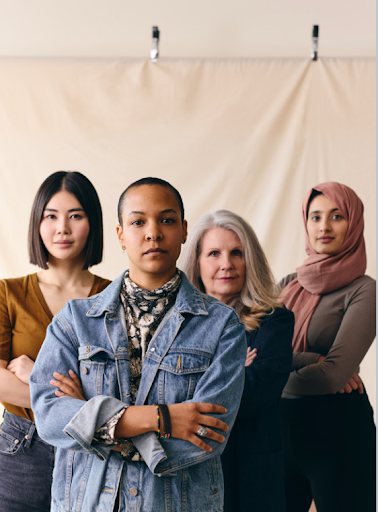the still waters mission:
To give African American women a safe space to discover and use their inner voice. We help women, married women, and stepmothers who are battling anxiety and depression take back the peace within their lives.
By Desirae Trammell, APCC Still Waters Therapy
As a member of the BIPOC community and a therapist, I have witnessed firsthand the unique challenges and experiences we face due to systemic racism and historical injustices. The term BIPOC, which stands for Black, Indigenous, and People of Color, has gained traction in recent years to emphasize these experiences. It’s more than just a label; it’s a recognition of the severe and distinct forms of marginalization our communities have historically endured. This acknowledgment is essential, especially when it comes to addressing the disparities in mental health care.
Mental health is a crucial aspect of our overall well-being, yet many in the BIPOC community face significant barriers to accessing quality mental health care. These barriers include socioeconomic disparities, a lack of culturally competent care, and stigma within our own communities. The stress of racism and discrimination compounds these issues, often leading to anxiety, depression, and PTSD. These stressors are not only frequent but pervasive, affecting multiple areas of our lives and leading to chronic mental health issues.
Stigma around mental health in BIPOC communities can be particularly pronounced. Cultural attitudes towards mental illness can discourage individuals from seeking help, perpetuating cycles of suffering in silence. In many of our cultures, there is a strong emphasis on resilience and self-reliance, which can sometimes translate into a reluctance to seek professional mental health care. This stigma, combined with a historical mistrust of medical institutions, can create significant barriers to treatment.
Culturally competent care is vital in addressing mental health issues in our community. This means having mental health professionals who are not only aware of but sensitive to our cultural contexts and specific needs. Culturally competent care can build trust, ensure better communication, and ultimately lead to more effective treatment outcomes. It’s also essential for mental health care providers to understand the impact of systemic racism and incorporate this understanding into their treatment plans.
Addressing mental health in BIPOC communities is not just about providing access to services but also about systemic change. This includes advocating for policies that reduce socioeconomic disparities, combating stigma through education, and training more mental health professionals from BIPOC backgrounds. By doing so, we can work towards a more equitable mental health landscape where everyone, regardless of their racial or ethnic background, has the opportunity to thrive. Together, we can build a future where our communities are not only acknowledged but also supported in their mental health journeys.


Be the first to comment